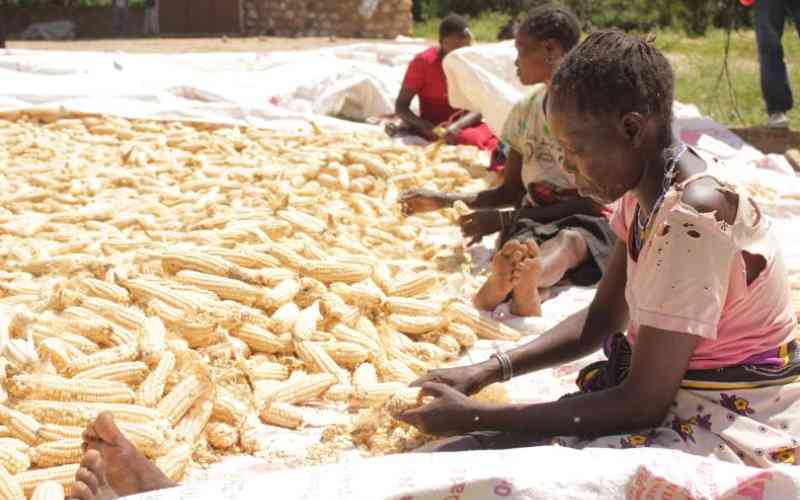×
The Standard e-Paper
Smart Minds Choose Us

Farmers sorting maize before shelling at Wei Wei irrigation scheme in Sigor ,West Pokot [Christopher Kipsang, Standard]
Wei Wei in Sigor, West Pokot County was once synonymous with guns and banditry, but tired of the bloody fights, the locals have found healing in farming.